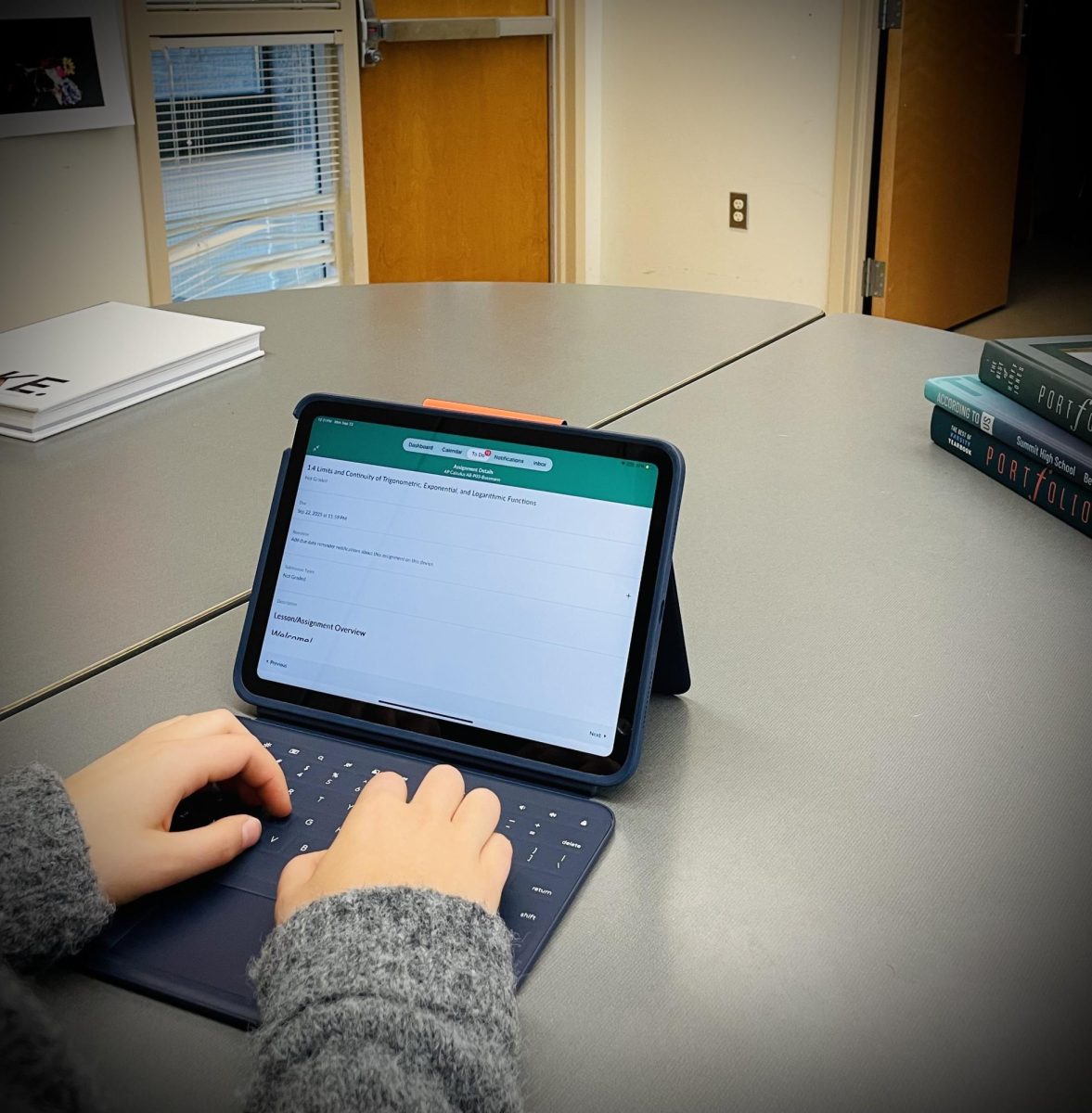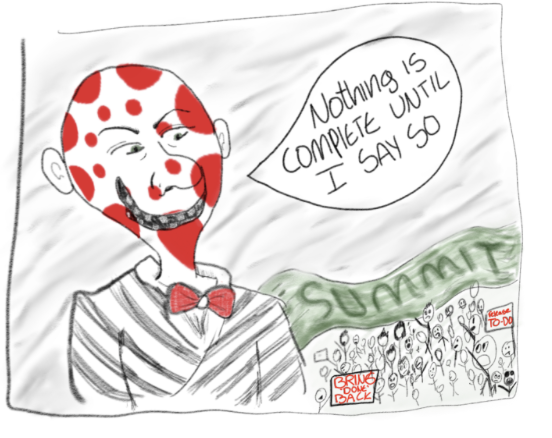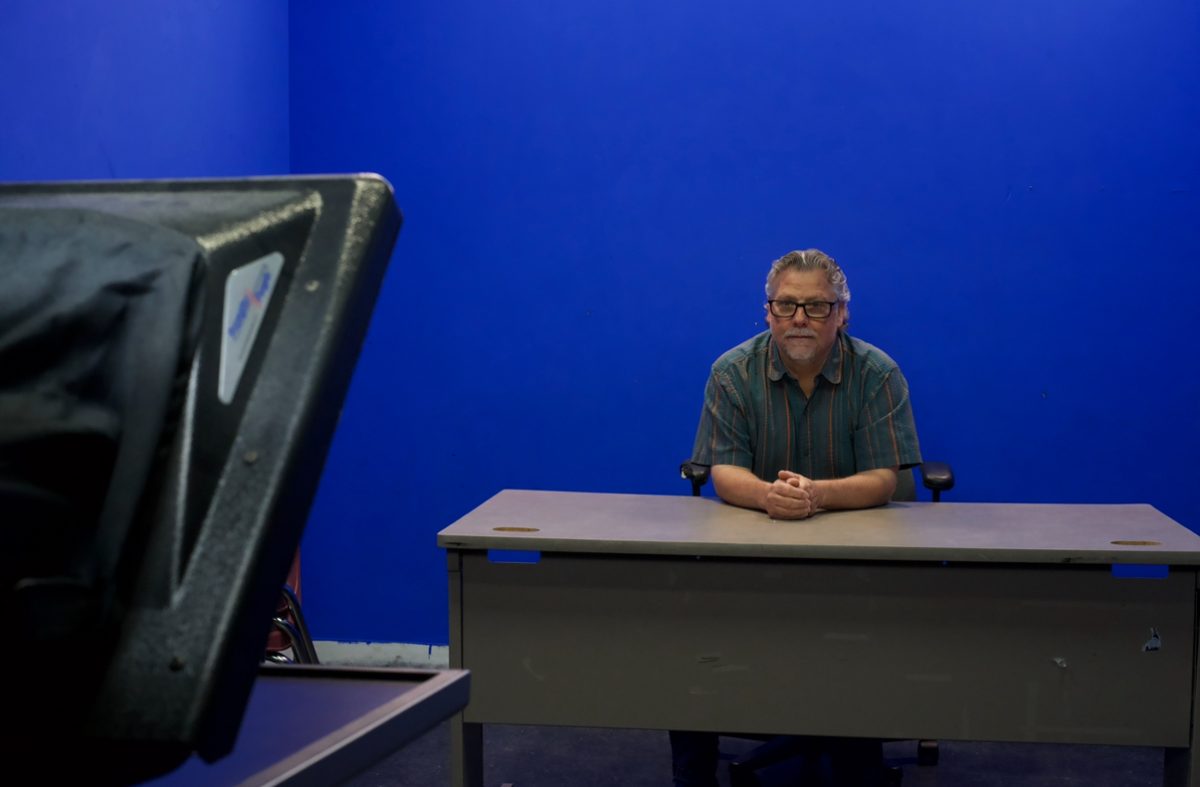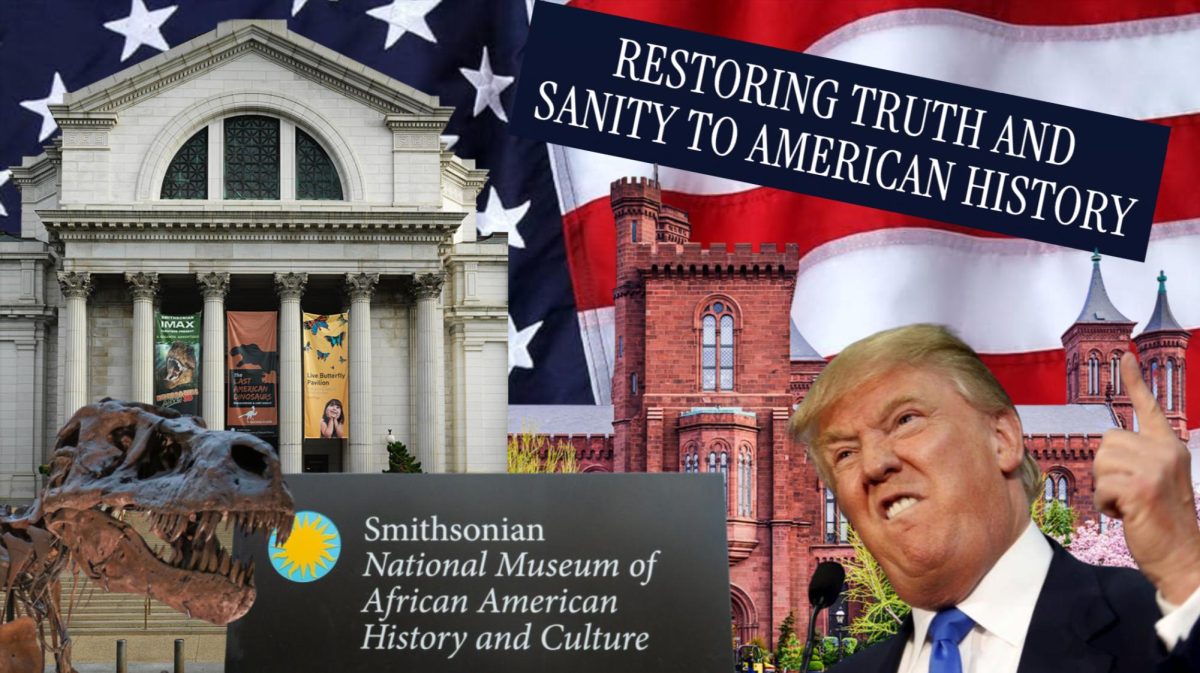At the museums of the Smithsonian Institute, the past becomes present. Skeletons of long-extinct creatures tower over visitors and historical artifacts combine to tell one collective story: the proud and messy saga of the American people. The Institute, which was founded in 1846 as “an establishment for the increase and diffusion of knowledge,” now spans across 21 museums, all of which work to achieve this common purpose. However, under the Trump administration, history has been called into question and the Smithsonian’s integrity hangs in the balance.
On March 27, President Donald Trump signed an executive order titled “Restoring Truth and Sanity to American History,” which outlined his plans for the reform, or, in the eyes of some, destruction, of the Smithsonian museums. With Vice President JD Vance at the helm, the administration plans to guide the Institute in removing all “improper ideology” from their exhibits, particularly those which reference systemic racism or transgender Americans.
In the order, Trump cited a far-reaching conspiracy to “rewrite our Nation’s history, replacing objective facts with a distorted narrative driven by ideology rather than truth.” But who is it that decides our nation’s truth: the president, who has no experience whatsoever in the realm of history, or the highly-educated experts in charge of the Smithsonian? For Summit Social Studies teacher Doug McDonald, the answer is clear.
“I think [the Trump administration] should leave history to the historians,” said McDonald.
At the Smithsonian, in-depth research and proper citations fill every exhibit. How could one not describe that as fact? But in reality, Trump does not care about fact. He does not care about the removal of all ideological narratives from the museum—he simply cares about erasing those narratives which do not match his own.
“He’s inserting his own ideologies into things that are actually supposed to be insulated from any specific administration’s ideologies,” explained US History and AP Government teacher Marni Spitz.
This is not what history is. One cannot simply remove or, in Trump’s own words, rewrite, history because they do not agree with it. In fact, history is not something to agree or disagree with—it is an objective fact. Whether we like it or not, it is part of what makes us American, and twisting a factual narrative to fit a political agenda is a danger our country cannot risk.
“If you infuse politics and have politics be the main arbiter of what is and what is not historically accurate, then you are guaranteeing that history will be used to hurt some and help others, and that’s not what history should be,” said AP Government teacher Patrick Kilty.
Trump speaks so fondly of greatness, but he fails to realize that greatness is not synonymous with perfection. Parts of American history are dark and devastating. But great countries, great people, do not feel threatened by the horrors of their pasts. If Trump truly believes that erasing our history is the path to greatness, then it may be time that he looks in the mirror.
After all, it does not serve us to forget. There is a reason why history classes are built into every state’s curriculum. We learn about our successes so we can recreate them and study our failures to ensure that they remain in the past.
“It’s just a fact of history that we have to know about in order to not repeat it,” said Owen Cogen, a Summit junior and AP US History student.
But don’t take it from me: altering the historical narrative has long been a page in the political playbook. From past leaders including Adolf Hitler and Joseph Stalin to present-day authoritarian strongmen such as Vladimir Putin, Kim Jong Un and Xi Jinping, the concept of rewriting history is a recurring theme. Through propaganda and government censorship, they have formed ideology-based narratives meant to facilitate political gain rather than promote knowledge.
“Any totalitarian regime that has existed? That’s one of the first things they do. They rewrite history,” Kilty explained.
While Kilty acknowledges that Trump is unlikely to establish a totalitarian state, this precedent is undoubtedly dangerous. Restricting the diffusion of historical fact is an alarming expression of power, interfering with our freedom of thought and therefore our democracy.
According to Trump, learning about racism jeopardizes the Smithsonian’s mission of “honoring the richness of American history and innovation and instilling pride in the hearts of all Americans.” However, to truly honor our past, we must learn all parts of it, not just those which fit Trump’s political narrative. Describing the study of slavery and systemic racism as pleasant would be an outright lie, but growth and survival are impossible without discomfort. The hero Achilles would not have fallen if he had remembered his vulnerability, and if America’s dark history is its Achilles’ heel, we must know this: Forgetting our greatest weakness spells out certain death.



































Ginny Aguirre • Jun 30, 2025 at 10:49 pm
We can’t let history be rewritten by Trump. The horrors of banned books and erased history can never be restored. What can we do to stop this?